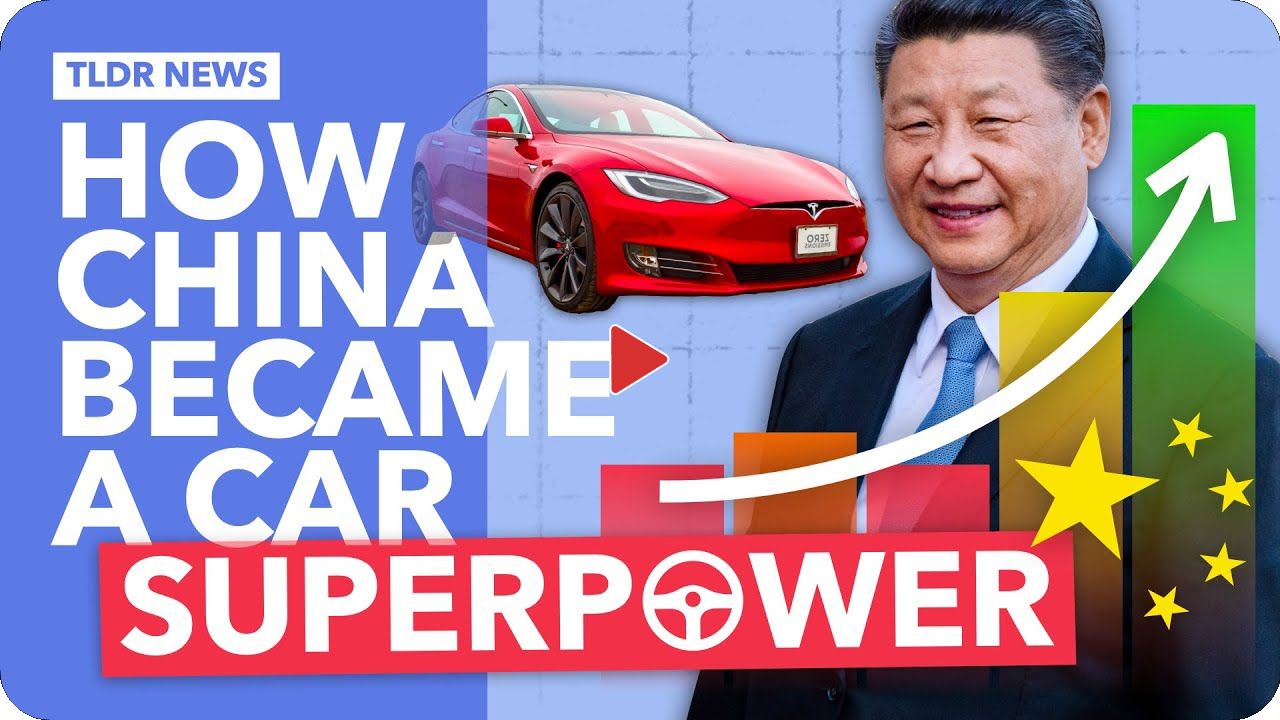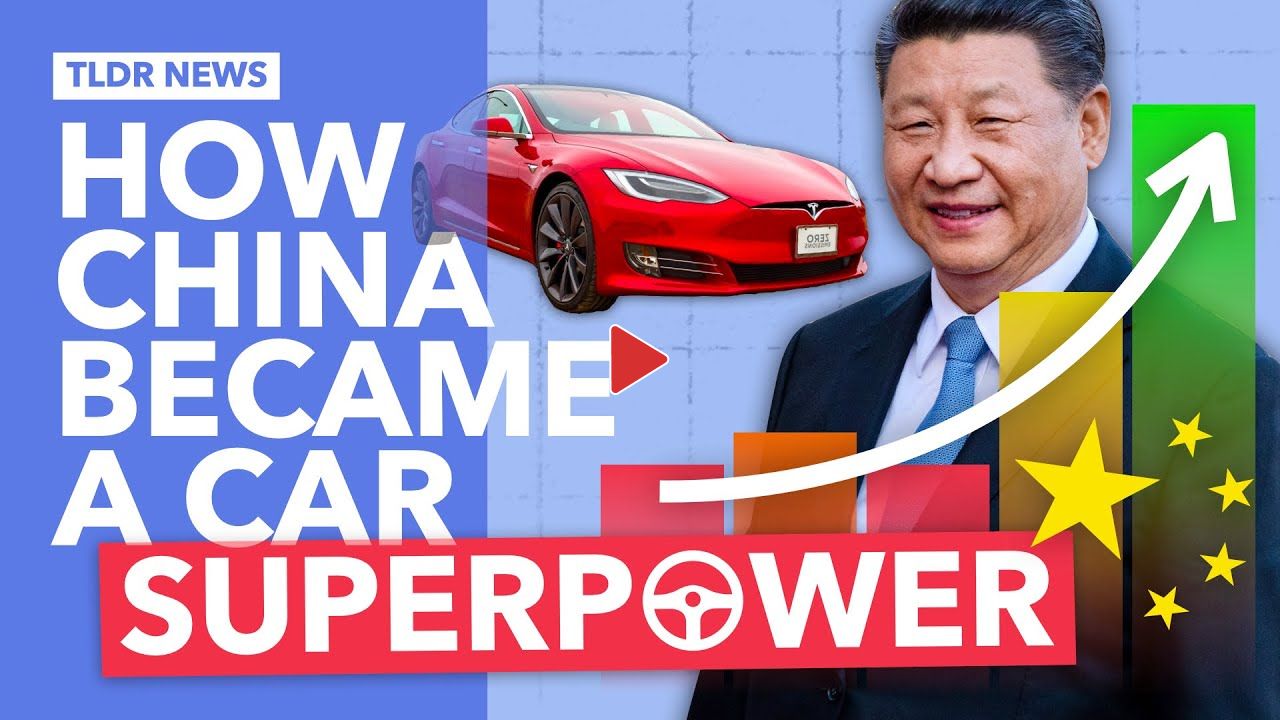China's Thriving Car Industry and its Impact on Global Market

Introduction
The dominance of German and Japanese automobile exporters has been well-known throughout history. Brands like Volkswagen, BMW, Mercedes-Benz from Germany, and Toyota, Honda, Nissan from Japan have achieved global recognition. Cars have become symbolic of the economic identity of these countries. However, in recent years, China's domestic car industry, particularly the electric vehicle sector, has witnessed exponential growth. Surprisingly, China has now surpassed Germany and Japan to become the world's largest vehicle exporter. This blog post delves into the thriving car industry in China, the concerns of politicians, and potential future developments.
China's Rise in the Car Industry
China's domestic car industry, along with its electric vehicle sector, has experienced tremendous growth in recent years. This growth has propelled China to the forefront of the global automobile market. The emergence of Chinese car manufacturers has not only made an impact domestically but also in the international arena.
Concerns of Politicians
The rise of China's car industry, especially in electric vehicles, has caused concern among politicians across the globe. French President Emmanuel Macron has gone as far as calling for a potential trade war focused on the car industry with China, citing China's newfound dominance as the main reason.
Implications for the Future
China's increasing influence in the car industry has raised questions about the future of the global market. As China continues to expand its export capabilities, other countries may face greater competition and see a decline in their own automobile industries. It remains to be seen how this shift in power dynamics will shape the global car market moving forward.
Conclusion
China's thriving car industry, particularly in electric vehicles, has disrupted the dominance of traditional exporters like Germany and Japan. This transformation has raised concerns among politicians, leading to discussions of potential trade wars focused on the car industry. The implications for the future of the global car market are significant, as competition intensifies and power dynamics shift.
The Impact of China's Rise in the Car Industry
Introduction
The car industry, particularly China's significant role within it, has become a hot topic in geopolitics due to various reasons.
The Importance of Cars in Global Trade
Cars play a vital role in Western countries, being a significant import and surpassing commodities like oil. Additionally, the emergence of the electric vehicle (EV) business has captured the attention of politicians, as it is expected to become a huge industry in the coming years. Bloomberg predicts that the EV industry will be worth $46 trillion by 2050.
Building Domestic Green Industries
Politicians believe that developing a domestic EV industry can also nurture other green industries such as battery manufacturing and green hydrogen production. These industries are expected to create jobs, foster growth, and reduce strategic dependencies in the new era.
Concerns About China's Meteoric Rise
Politicians worldwide, especially in Europe and the US, are increasingly anxious about China's rapid rise as an automobile exporter. Traditionally, the biggest car exporters have been Japan and Germany, surpassing countries like the US with a large domestic car industry. However, China's recent surge in car exports has caused a shift in the global landscape.
China's Transformation in Car Exports
China's car exports were negligible until recent years. Initially, Chinese companies struggled to compete with Western car manufacturers. However, in 2021 alone, China's car exports doubled from around 800,000 to 1.6 million vehicles. China surpassed Germany to become the second-largest car exporter and then overtook Japan to claim the top spot in car exports.
Dominance in Electric Vehicles (EVs)
China's dominance in EVs is even more significant. Back in 2015, China became the largest producer of EVs, with most sales occurring within its domestic market. Chinese consumers have shown a strong preference for EVs, with these vehicles accounting for approximately 30% of all car sales in the country. Comparatively, the UK and the US have much lower EV adoption rates.
Expanding Global EV Exports
Chinese companies have recognized the potential beyond their domestic market and are exporting a significant number of EVs. In 2021, China surpassed Germany to become the world's largest EV exporter. Experts predict that China's EV exports will double again this year, accounting for approximately 50% of all global EV sales.
Conclusion
China's rise in the car industry, particularly in electric vehicles, has garnered attention from politicians worldwide. As the global trade landscape evolves, countries aim to bolster their domestic industries and reduce dependencies, which is driving concern and interest in China's meteoric rise.
China's EV Exports: Tesla's Influence and Local Companies Catching Up
Tesla's Role in China's EV Exports
One notable player in China's electric vehicle (EV) export market is Tesla. In 2022, Tesla accounted for about 50% of all of China's EV exports. This significant share can be attributed to Tesla's gigafactory in Shanghai, which has a production capacity of approximately 1.25 million vehicles per year.
Chinese Brands Outselling Foreign Brands in 2023
However, domestic Chinese companies are rapidly catching up. In fact, it is projected that 2023 will be the first year when Chinese brands outsell foreign brands in China's EV market. This growth can be attributed to a combination of factors, including generous state subsidies provided by the Chinese Communist Party (CCP) and the development of China's domestic manufacturing and battery sectors.
China: The Manufacturing Powerhouse
China is known as the "factory of the world" due to its impressive manufacturing base. This manufacturing prowess plays a crucial role in the country's EV industry. Chinese companies have benefited from the country's substantial investment in manufacturing and battery sectors. It is not surprising that China has emerged as the leader in battery production.
China's Dominance in Battery Industry
China produces a staggering 77% of all batteries worldwide, accounting for approximately ten times more batteries than any other country. China's battery industry covers every step of the supply chain, from lithium production to cathodes and anodes. This level of dominance has provided Chinese companies with a significant advantage in flexibility compared to their European counterparts.
Adaptability in Battery Technologies
Chinese companies have showcased their adaptability when it comes to battery technologies. For instance, they swiftly shifted from nickel-based batteries to lithium-based batteries when the cost of nickel soared due to Russia's position as the world's largest nickel miner. This ability to adapt has allowed Chinese companies to stay ahead in the EV market.
In conclusion, China's EV export market is evolving rapidly. Tesla has played a significant role, but domestic Chinese companies are catching up and are expected to outsell foreign brands in 2023. China's dominance in the battery industry and the flexibility of its companies give them an edge in the global EV market.

